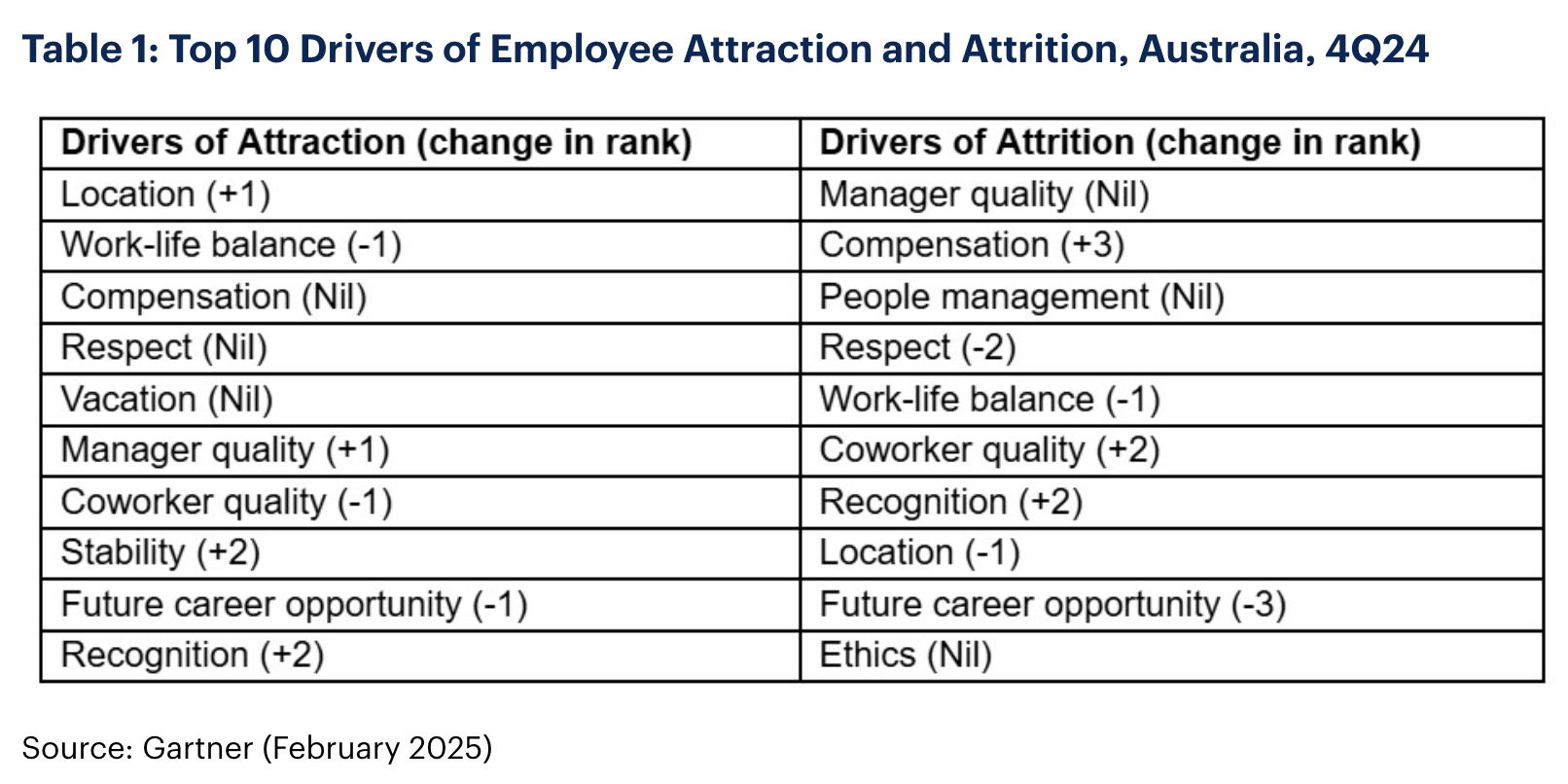
'Delivering a great employee experience is increasingly difficult for Australian organisations,' says expert offering tips for HR

Only a third of Australian employees said they intend to stay with their current employer amid low perceptions of workplace culture and agility, according to a new report.
Gartner's latest Global Talent Monitor data found that just 33.7% of employees want to stay with their current employer in the fourth quarter of 2024, a decline from the 35.4% in the previous quarter.
The findings come as the report also unveiled that employee perceptions of workplace culture plunged to a three-year low of 26.4% in the fourth quarter.
Employees' perceptions of an organisation's agility have also dropped to a new low of 11.9%, along with the outlook on its innovative work environment, which decreased to 16.3%.
Achieving a positive and productive workforce culture can be achieved by investing in managers and high-potential employees, according to Gartner.
This comes as manager quality remains the top driver of attrition in workplaces, which is followed by compensation and people management.

"In a cost-constrained environment, investing in leader and manager development is vital in addressing retention issues and enhancing potential workforce performance," said Neal Woolrich, Director, Advisory in the Gartner HR practice, in a statement.
"They play a key role in addressing organisational barriers or frictions that stop teams being confident or productive. They're also central to enhancing the employee experience, which can lead to significant payoffs in areas such as innovation, agility and culture, that often challenge organisations."
Investing in high-potential employees is also crucial to ensure a positive workforce culture, according to Gartner.
High-potential employees refer to workers who have the "ability and aspiration to rise within an organisation." Woolrich described them as great networkers, instinctive problem solvers, and who can influence company culture and engagement.
"Employers must tap into these employees if they wish to improve culture and engagement, particularly at a time when the workforce is being asked to do more with less," he said.
Gartner's findings underscore the need for organisations to prioritise workplace culture or risk disengagement from employees. In fact, the data found that the number of employees that consider themselves as highly engaged dropped to 19.6% in 4Q24, a 10% decline from 1Q22.
Disengagement also comes with a major cost - as findings from Gallup last year revealed that low employee engagement costs the global economy $8.9 trillion.
"Delivering a great employee experience is increasingly difficult for Australian organisations due to weakened company culture, employee fatigue leading to disengagement, and shifting flexible work expectations," Woolrich said.
"To turn this around, employers must focus on fulfilling employee value proposition promises; building a culture that engages and retains employees; and driving talent and business outcomes."
A 2023 study published in the International Journal of Research and Analytical Reviews examined the impact of organizational culture on employee engagement. The researchers found that a positive work culture significantly enhances employee engagement by fostering a sense of belonging, motivation, and commitment among employees. Key cultural factors contributing to higher engagement levels include effective communication, recognition of employee achievements, opportunities for professional growth, and supportive leadership.
The study concluded that organizations aiming to boost employee engagement should focus on cultivating a culture that promotes open communication, acknowledges and rewards employee contributions, provides avenues for career development, and demonstrates strong, supportive leadership.
Culture Amp, an employee experience platform, also offered the following steps to improve employee engagement:
According to Culture Amp, improving employee engagement will need the right tools and a logical process.
"Improving employee engagement isn't something you can accomplish overnight, but if you take it one step at a time, you can achieve the results you're looking for," it noted.